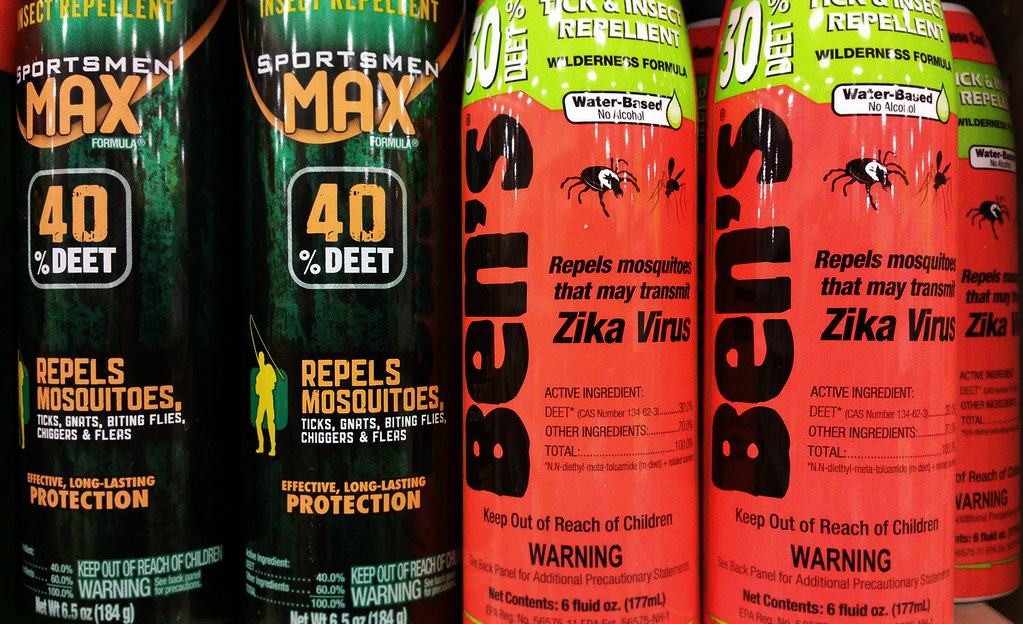Summertime brings more than heat – it also brings mosquitoes. And those pesky bites, in addition to being annoying and itchy, can sometimes also transmit diseases.
Professor Scott Weaver, the chair of Microbiology & Immunology at the University of Texas Medical Branch, spoke with Texas Standard about why some people are more susceptible to being bit by mosquitoes and when we should keep an eye on South American mosquito-borne disease outbreaks like Zika or dengue fever. Listen to the interview above or read the transcript below.
This transcript has been edited lightly for clarity:
Texas Standard: The U.S. is seeing the first locally transmitted cases of malaria in 20 years, and one of those cases is in South Texas. What does that tell you as a scientist who studies diseases and as a resident of Texas?
Scott Weaver: Well, I think it tells us that we’re always at risk of malaria and other mosquito-borne diseases that are not here endemically. They don’t circulate permanently, but they arrive all the time through infected travelers. And each one of those infected travelers has the potential to start a chain of transmission.
Texas and Florida, like we’re seeing now with malaria, we’ve seen the same history in recent years with Zika virus and chikungunya virus and dengue virus. These are tropical diseases that can do quite well in the southern parts of the country. And with climate change going on, the risk may move further north as the distribution of the mosquitoes with the potential to transmit these agents also move north with warmer temperatures.
So I think we’re going to see more of these kind of situations. I don’t think we’re going to see huge outbreaks of these diseases because here in the United States, we simply don’t have the level of exposure to mosquito bites that are found in many parts of the world and the tropics, where people don’t live in air-conditioned homes or even screened homes or workplaces in many cases.
What are some of the infectious diseases that people are more likely to encounter from a mosquito bite here in Texas?
Typically here our biggest problem is with West Nile virus. It’s a little bit early in the season; so far, it doesn’t look like anything unusual is going on. But the high temperatures could have an impact. A lot of these viruses, including West Nile, do very well in very hot conditions – especially in the mosquito vector, they tend to replicate faster because mosquitoes can’t maintain their body temperature like we do at a set level. They maintain more or less ambient conditioned temperatures. So when it’s hot outside, the viruses replicate faster and they can reach the saliva of the mosquito faster and be spread readily.
There’s nothing we can really do to eliminate West Nile virus because it’s what we call a zoonotic virus: It always infects wildlife – birds, in the case of West Nile. And it’s very difficult to intervene in that bird-mosquito-bird transmission cycle. And once that level of transmission builds up, then humans are at higher and higher risk for infection when occasionally one of those mosquitoes that became infected from a bird bites one of us and we get infections.
And of course, for West Nile, they’re especially high risk for older age groups – over the age of 60 tend to suffer the most severe disease, central nervous system disease especially.
Well, what can people do to prevent these mosquito bites? You know, bug spray comes to mind, but are there certain repellents that are better than others?
Probably the most effective are DEET and picaridin, and these are found in the vast majority of repellents that you’d find in your local drugstore or supermarket. They’re very effective. And really the use of one or the other is just a preference. But with the DEET and the picaridin, they last for several hours, and they can be reapplied.
There are a few cautions for DEET – for example, it shouldn’t be used in babies under the age of 6 months. It shouldn’t be used above a 30% concentration in children. Of course, the other thing that we always need to think about is wearing loose-fitting, long-sleeved clothing that mosquitoes cannot bite through and simply not being in situations where we’re likely to encounter a lot of mosquitoes.
Lastly, because people always ask about this – are mosquitoes attracted to some people more than others? And if so, why?
Absolutely. There are differences, and they seem to be largely based on different compositions of chemicals in our skin. Different people have different levels of a few important attractants that emanate from our skin.
And so depending also probably on the level of perspiration and activity and so forth, we do vary a lot in our attractiveness to mosquitoes, although everybody is attractive to mosquitoes to one extent or another. Nobody can count on thinking that they’re less attractive than others and therefore they don’t have to worry about their exposure.













